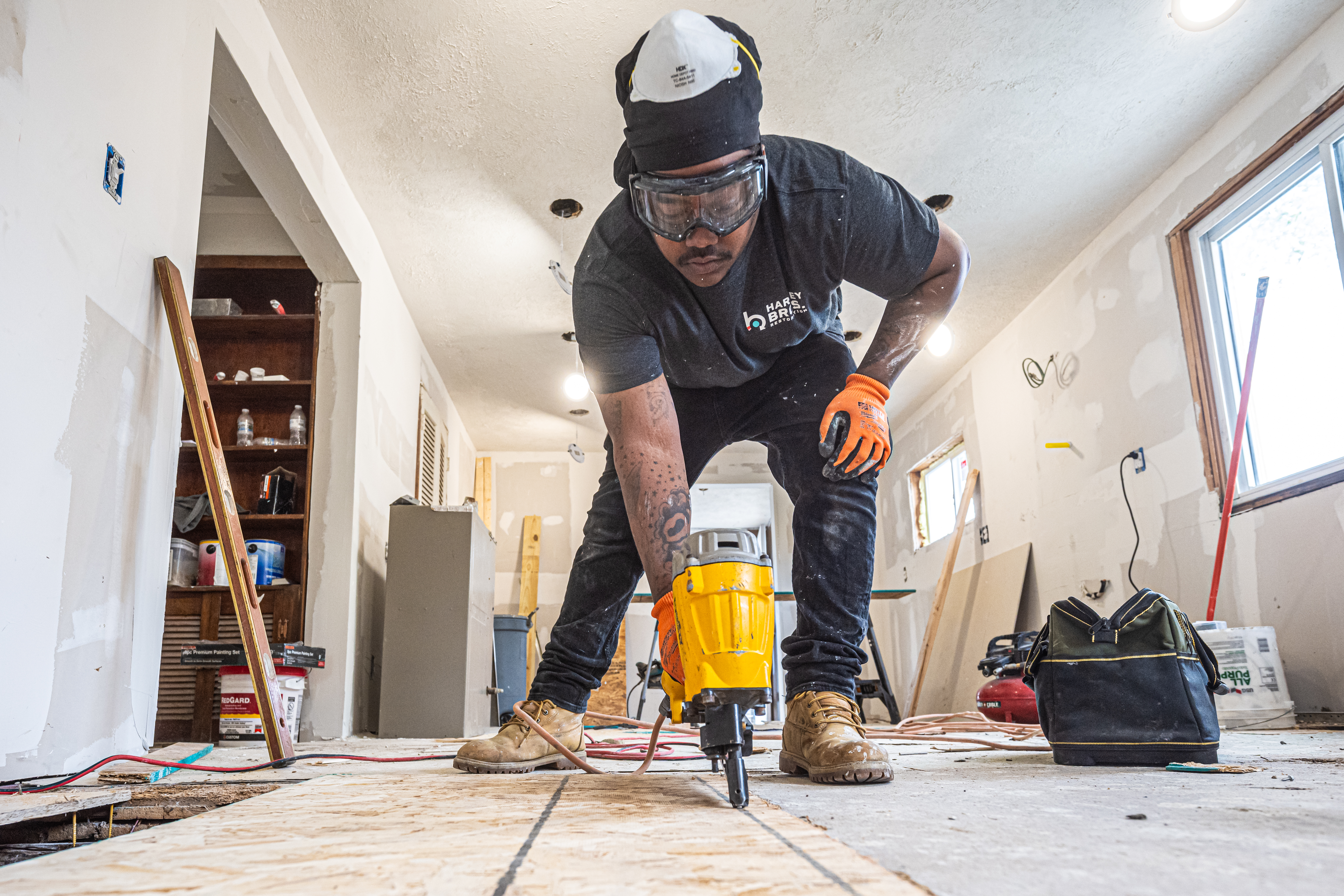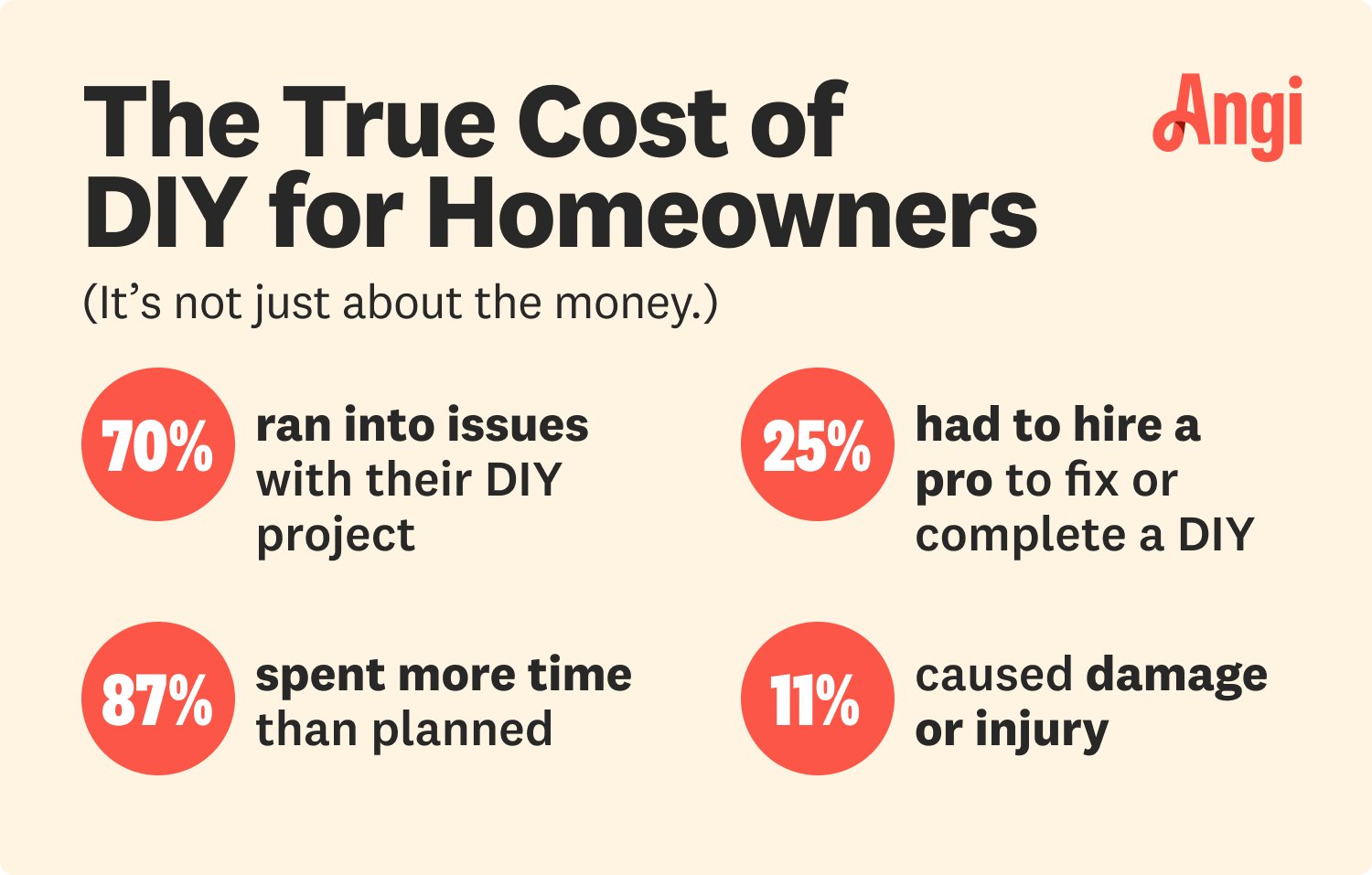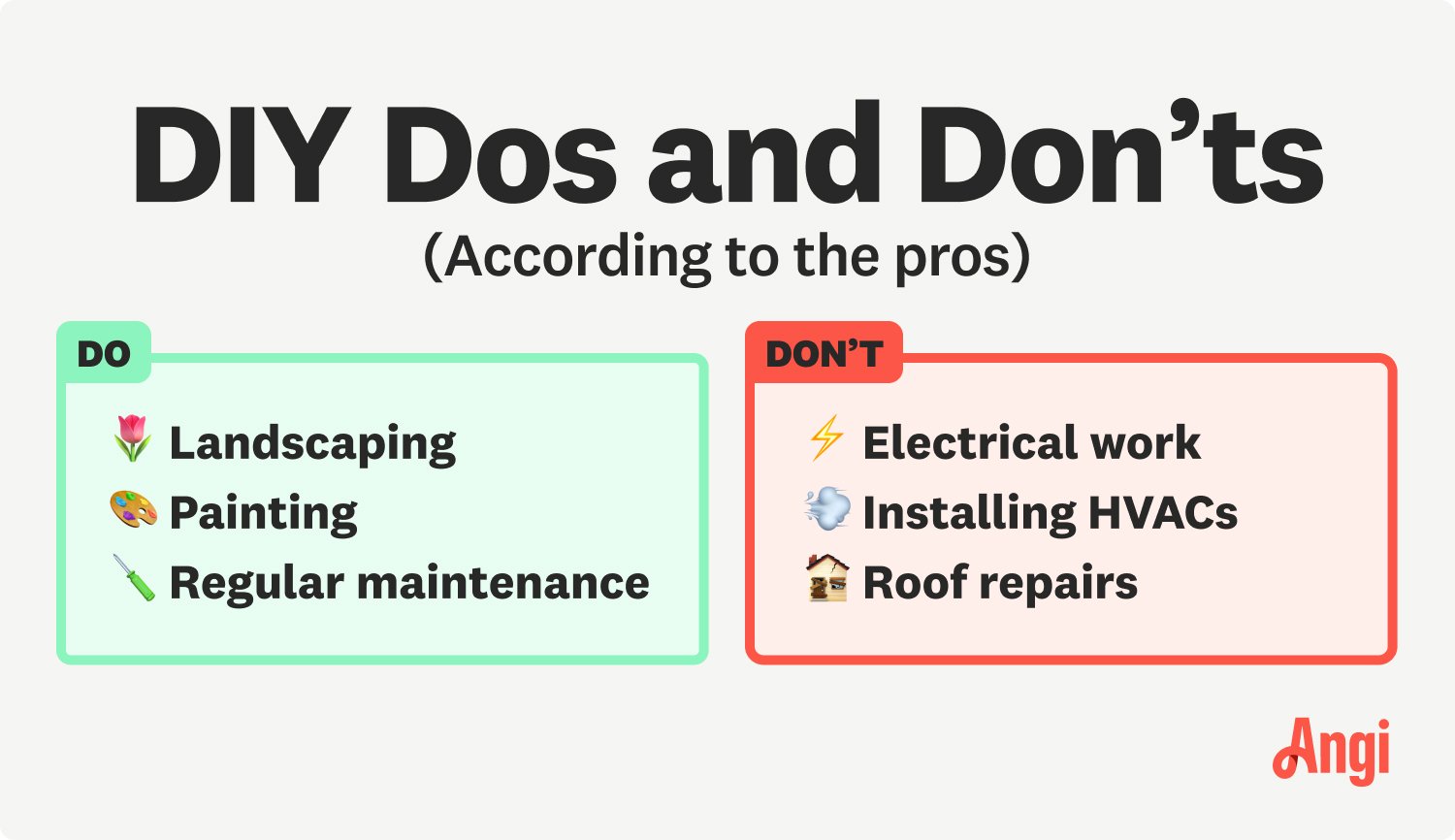DIY Dreams vs. Reality: When Home Projects Go Wrong and Pros Step In
Insights into when DIY goes wrong, when to hire a pro, and tips for how to make sure your next attempt at a DIY project goes right.


Seeing your dream kitchen or bathroom on social media and thinking you can embark on the renovation on your own? You’re not alone. Many homeowners try DIY projects with the best of intentions. They’re looking to save money, learn a new skill, and even have a bit of fun. But our recent survey reveals that the path from DIY to done can be fraught with unexpected challenges, often leading to bigger headaches and higher costs.
Read on for more insights into when DIY goes wrong, when to hire a pro, and tips for how to make sure your next attempt at a DIY project goes right.
The Confidence Gap: Overestimating Skills and Underestimating Issues
It turns out that, while many homeowners are eager to jump into a DIY project, only 5% feel they are a DIY expert, with a quarter (26%) identifying as beginners. As a result, 70% of homeowners experienced issues with their DIY project. These issues ranged from not having the right tools (26%) to making incorrect measurements or calculations (17%), or even breaking something (17%). More alarmingly, 11% caused damage to their home, injured themselves, or created a safety hazard.
Common DIY projects homeowners attempt include regular maintenance, painting/staining, landscaping, and removing/trimming trees. While many are motivated by saving money (71%) or because the project seems easy (53%), a significant number also do it for fun (28%) or to learn a new skill (21%).

YouTube ≠ Expertise: The Pitfalls of DIY Prep
When it comes to preparing for a DIY project, 60% of homeowners turn to YouTube videos, and 54% conduct online research. While these resources can be helpful, they aren't a substitute for professional expertise. In fact, 8% of homeowners admitted to doing no real preparation at all before diving in!
This reliance on online tutorials, coupled with a lack of hands-on experience, often leads to trouble. As one homeowner lamented, "It was more difficult than I thought and I ended up having to hire someone." Another shared the frustration of being "halfway through and then realizing you can't do it yourself, you need to hire someone to finish, and they can't get you into the schedule for 6 weeks."
DIY Regret is Real: When Professionals Have to Step In
The survey reveals a stark reality: 1 in 4 homeowners (25%) had to hire someone to fix or complete the DIY project they attempted. And for those who had to call in a pro, a majority, 55%, ultimately regretted trying to do the project on their own.
Not only did these projects take longer (87% spent more time than planned, with an average of three more weeks), but they also cost more. On average, homeowners who had to hire a professional spent an additional $862 more than they originally planned.
Pro Fixes Come at a Cost: The Professionals' Perspective
It's no surprise then that 90% of professional service people report being hired to repair or correct home improvement projects that homeowners had attempted themselves. Pros estimate that they are called in to fix DIYs gone wrong a staggering 37% of the time over the past five years. And the consensus among professionals is clear: 68% believe that poorly done DIY work ultimately costs more for the homeowner.
The most common DIY projects gone wrong, according to pros, include drywall repair (55%), plumbing work (51%), electrical repair (51%), and installing flooring (48%). Shocking anecdotes from professionals highlight the dangers of overconfidence: from a homeowner who "ended up removing a load bearing beam" to another who "tried to add some windows and a couple of doors... and cut out a section of a load bearing wall and came really close to having his living room fall to the basement floor."
Pros are also quick to caution homeowners against attempting certain projects. They shared that homeowners should typically avoid their own electrical work, installing new HVAC systems, and doing their own roof repairs. Pros shared that some areas where homeowners might be better equipped to handle a DIY project are landscaping, painting, and regular maintenance.

The Takeaway: Prepare, Know Your Limits, or Call a Pro
The advice from both homeowners who've experienced DIY woes and the professionals who clean up the aftermath is consistent: preparation is paramount, know your limits, and don't hesitate to call an expert.
"Do your research! Do it the right legal way. Make sure you have the knowledge, know how and resources," advises one pro. Another urges, "If you know nothing about it from the beginning please do not attempt a difficult task."
At Angi, we often like to share that when you’re thinking about tackling a DIY project, you should consider your time, talent, and tools. Ask yourself how long a project might take and if you have the time, if you have the skills needed to complete the project, and if you have the correct tools needed. If you don’t have all of these things, it’s a good idea to consider hiring a pro.
If you need help finding a pro, head to Angi.com.
